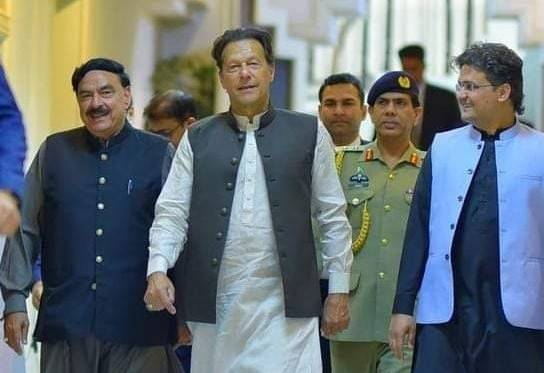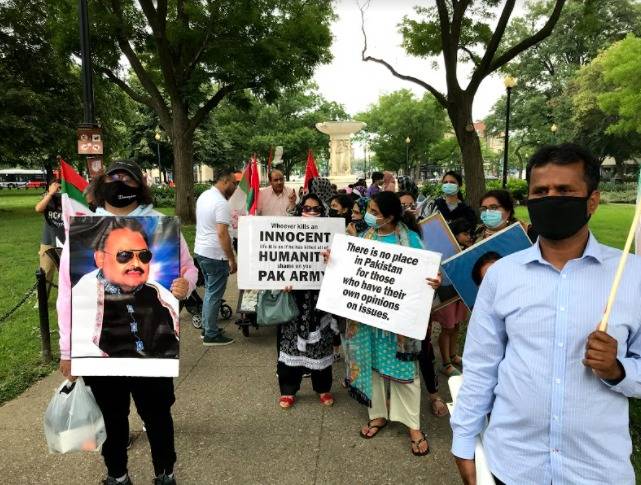Illegal business … Murder plot…Pak envoys are embroiled in non-diplomatic issues in South Africa and London. Pretoria has imposed a ban on the sale of used vehicles at the Pakistan Embassy. The revenue department has accused two top Pakistani diplomats of selling the vehicles by importing them into the country for the diplomatic purpose. In another incident, a London court heard the role of a Pak diplomat in an assassination attempt on a dissident at Rotterdam…. A special report by Kaliph Anaz
The misconduct of some Pakistani diplomats abroad turned into a major embarrassment for the country. A diplomat is considered to be the flag bearer of its image in foreign lands. The conduct of diplomats in alien lands can make or break the perception about it in an increasingly globalised world. Some recent incidents involving top Pakistani diplomats in host countries have not just caused a strain in relations with these countries but dealt a blow to Pakistan’s image makeover efforts.

A recent case involves top officials posted in the Pak embassy in South Africa. According to a report published by Geo News, the South African revenue department has initiated a probe against the Pak embassy in connection with importing and illegally selling vehicles in the market. Diplomatic ties between the two countries have strained after South African authorities decided to impose an unannounced ban on the transfer and registration of vehicles of the Pakistani embassy in the country.
The most appalling aspect of this scandal is the involvement of top layer of embassy officials. However, Islamabad’s response to South African concerns on the issue has been of denial and vengeance. In place of initiating own inquiry into the matter, the government of Pakistan has resorted to imposing a similar ban on the registration and transfer of vehicles of the South African embassy in Islamabad.
The latest case reminds South Africa of an illegal immigration network which was actively aided by a Pak diplomat posted in the neighbouring country, Zimbabwe. In 2020, an official of the Pak embassy in Harare was found helping three Pakistani nationals to illegally enter into South Africa through the border town, Beitbridge. The matter came to light following the arrest of these individuals in Zimbabwe. The Foreign Ministry of Zimbabwe then issued a diplomatic note to the Pak embassy and ordered the immediate deportation of the concerned official. Some media accounts had also indicated the involvement of other diplomats in the human trafficking racket to smuggle individuals into South Africa.
Such corrupt practices appeared to be endemic to Pak missions worldwide. In April 2021, Pakistan’s ambassador to Saudi Arabia and six other officers working in the embassy in Riyadh had to be recalled over complaints by the Pakistani community in the kingdom alleging harassment. Damage control efforts were apparent in the statement issued by the Pak Prime Minister’s Office and the Foreign Office later, which assured the formation of a committee to probe into the working of Embassy/ Consulates in the Kingdom. Among other things, the committee was to look into extorting and fleecing Pakistani expatriate workers and overseas Pakistanis, causing delays on one pretext or another, resulting in extraction under duress. The then-Pak Prime Minister Imran Khan had to ask the Missions’ officials not to mistreat their own expat community living in Gulf countries.
Earlier, a London court heard Muhammad Gohir Khan was offered £100,000 to carry out the murder in Rotterdam. However, he failed to track his target down and was arrested on his return to the UK. He was sentenced to 13 years in jail for his crime. During the trial, the court heard the role of a Pakistani diplomat in providing the finance. The intended victim, Waqass Goraya, has told the BBC he is sure the Pakistani intelligence services were ultimately behind the plot and that it forms part of a wider crackdown on dissenting voices both inside and outside Pakistan.
There are many similar cases too. Ayesha Siddiqa, a London-based academic who has written extensively about the Pakistani military, received a visit and letter from police in Britain warning of “credible information” that her life was in danger if she travelled back to Pakistan.

Dr Siddiqa shared the letter with the BBC, and said her own inquiries had led her to find out, “there was a contract on my head given to some Afghan warlords to be eliminated on return to Pakistan… if the temperature was raised I could be targeted in the UK as well.”
Like Mr Goraya, Dr Siddiqa told the BBC she believed the Pakistani intelligence services were behind the threat. “I have no one else to suspect.” Three other Pakistanis living in the UK confirmed to the BBC they had contact with the police over the possibility of them being targeted in Britain.
While Pakistanis living abroad are feeling hopeless in face of the highhandedness and corrupt ways of Pak diplomats, the institutions and citizens of host countries can hardly expect an honest approach from them. If Islamabad genuinely wants to portray a positive image in other countries, it needs to begin with addressing the ethical issues surrounding its overseas staff.

